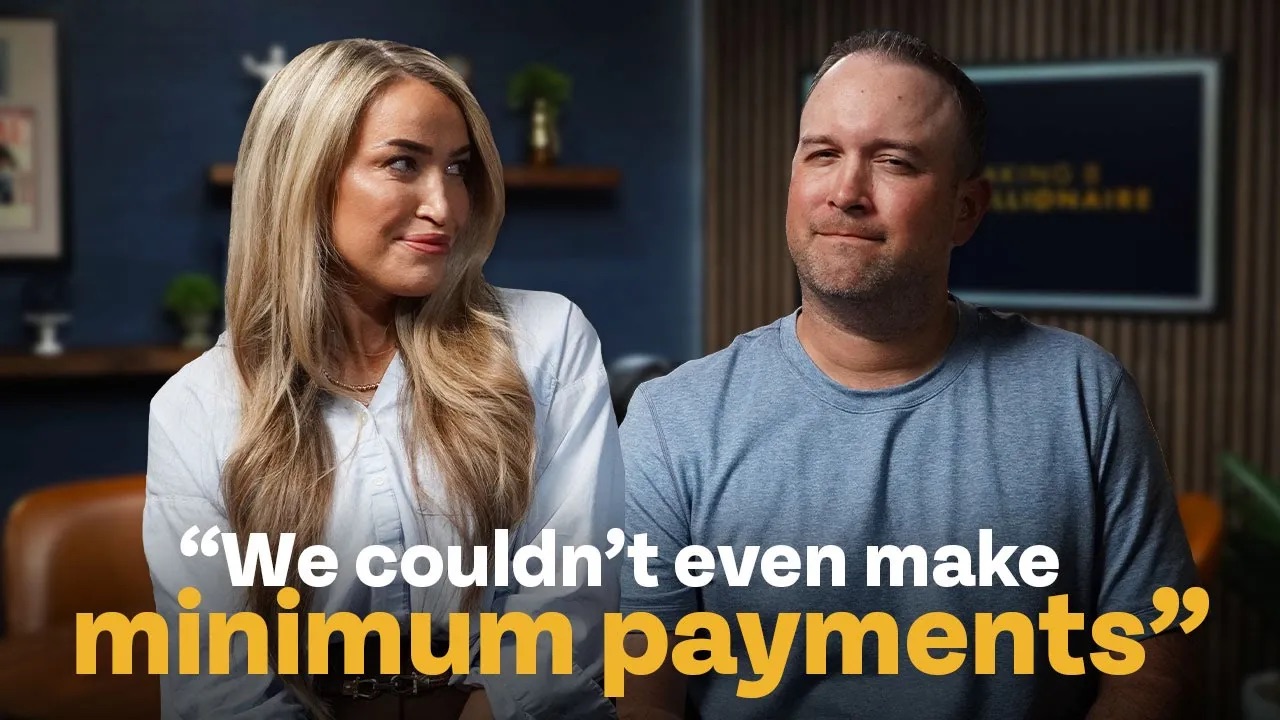Alright, Brian, let’s shift now. Let’s talk about the 50s. Because by the time in your 50s, there could be thousands of reasons why you might not be where you want to be, or you might not be exactly at the place you need to be, but this is the area where you have to refocus and redefine. Alright, what do I want realistically? Realistically, what do I want the next 10, 15, 25, 35, 40 years of my life to look like, and am I positioned for those things to be a reality in this decade?
Yeah, you’re definitely in this decade. I think you’re at the phase where you see where you want to be, so now you’re crossing the T’s, dotting the I’s. But you’ve got to figure out, am I… It’s back to that question that I was trying to get the 20 and 30-year-olds to focus on. Are you ahead of the curve, are you behind the curve, are you actually on the curve? This really is where you probably need to be taking a measure of where you are in your financial life.
That’s right. You have to take a measure of where you are to know if you are where you’re supposed to be. And we have a great tool that will help you do that. You can go to learn.money.com. It’s how can I assess where I am today. So the “Know Your Number” course actually walks you through this. Hey, I want to retire at this age, and I want to be able to live off of this level of income, and I have this much saved up right now. And this is my rate of return assumption, and these are my inflation assumptions. This allows you to know, okay, am I actually where I’m supposed to be, or do I need to change some things to get back on track?
Well, I think when you’re younger, in your 20s and 30s, you’re coming up with the concept of what you want retirement to look like. So you can play horseshoes. You can just get close and say, “Well, probably $3 million is going to be a good number for me.” Guys in your 50s, you can’t skip the homework. This is where you need to go beyond the basics. You need to reach out to the Social Security Administration. What does that Social Security statement actually look like for you? Go organize all those jobs you’ve had in the past that maybe had pensions or other retirement benefits, just to make sure you know what are all the cash flow options I’m actually going to have in retirement, so I can focus on what my expenses in retirement will look like and what’s going to offset that. And then be realistic with how are you going to cover healthcare. We all know Medicare is at 65 years of age, but a lot of folks will have desires to leave either in their 50s or even early 60s. You’ve got to have the bridge to know how you’re going to pay for healthcare. Now, look, I know since we’ve come out with the Affordable Care Act, there are more options, but a lot of states, the exchange doesn’t have a lot of viable options. So don’t skip this step thinking that it’s going to be easy. You need to have time to do your homework.
I love something you just said right there, Brian. You said, “Be realistic.” I do think that one of the things that you need to do in your 50s is you do need to reassess. Are the goals that I’ve always had, are they realistic? Because it is… I don’t want to say sad, but in reality, there are people who say, “Hey, you know what I’m going to do? When I retire, I’ve always wanted a place on the water. So I’m going to go get my beach house, and you know, I really want to take up sailing, so I’ve got to get a sailboat. So I’m going to get a beach house and a sailboat. But you know, the kids, they’re here, and I want to keep my house here, so I can’t get rid of that. And you know, we want to be able to travel, so we need a big travel.” And you start listing all these things that you want. And when we hear this, we say, “Hey, this all sounds wonderful, but unfortunately, I don’t know that the resources that you’ve accumulated will allow you to do all those things. Are the things that you want to do inside the realm of reality, or are they pipe dreams?” That’s not to sour you. It’s more to set you up so that you don’t retire and get there and start being frustrated and let down. So if you can go into retirement, if in your 50s, you can start really honing in on reality, it’s going to set you up for a more pleasant retirement than be like, “Holy cow, I thought it was going to be Lifestyles of the Rich and Famous, and it is Lifestyles of the cat food hamburger patties.”
But here’s what, everything you just said, like the people who even are successful and are thinking about the lake houses or the boats or the RVs, those are trophies of life. What I want people to be focusing on is really how do you own your time? How do you do things on your terms? You wake up in the morning, you do what you want when you want, how you want. The only way you can do that is if you have enough resources behind you that you now do it because you own your time. If those things that Bo mentioned, those goals that you have are going to take away from the ownership of your time, let that bring you purpose and bring it back to centralize it to the point that you don’t get distracted with the shiny stuff that you daydream about, but it actually is going to take you away from the owning of your life. And that’s the big part. I think that people who are even successful, you be like, “Man, I have built up $3 million, but man, I could go buy this beautiful lake house for $2 million.” And on paper, I can afford this. But can you? ‘Cause I want you to own your life in financial independence, not leverage your life. ‘Cause when you have encumbrances, you don’t really have independence, and you don’t really own your life. So be careful with those mental traps that can occur later in life. And in this stage, one of the ways that you can measure how realistic is, if I’ve only got $3 million, I buy a $2 million house. Are you stress-testing and have you actually worked through scenario analysis? Have you worked with a financial advisor to determine, “Okay, can I do the things I want to do in the way that I want to do it, or is it not feasible?” We are proponents that that conversation and that planning should happen before you get to retirement. Not on day one. On day one of retirement is not when you want to figure out if the plan’s going to work. You want to have figured that out a number of years before you got there so that you’re well-prepared and well-positioned for it.
Yeah, I think when you’re in your 50s, this is when you’re trying to figure out, am I doing a non-conforming retirement where, meaning you’re leaving either way, you know, early before 65 if you’re doing a 50s or even early 60s. Or are you going to do a conforming at 65, or even go do the, “I’ve got to work until I’m 70, 73.” And sometimes that’s because you financially are behind. Sometimes just ’cause you love working. I pray that I have the opportunity to work well into my 70s. I love doing this type of content with you guys. And that’s why, whatever your case is, whatever gives you purpose or whatever drives you to reach your goals, I do want you to know that I recognize this is probably the stage where you do want to graduate the relationship to the next level. I talk about the abundance cycle all the time, and a lot of you have been with me for over a decade now because we’ve been doing this show since 2006. And as you’re fine-tuning your goals, I would encourage you, if you’ve come and you’ve learned, applied, and grown your assets to a level of success, now that you just don’t know what you don’t know, you haven’t stress-tested, you haven’t turned that basket of funds into how that actually plays out in a goal situation, to know, are you 70% of the way there? Are you 85% of the way? Are you 98% of the way? We love it when we have those types of retirement plan meetings where I can say, look, in all effective ways, it looks like you have enough. Let’s figure out how you’re going to live the best, most abundant version of your retirement and your independence life. That’s exciting stuff for us. I mean, it gets the optimist in me, the person that loves a good plan when it’s put together and executed. This is what we hope we can bring to our financial mutants that are watching this content. For more information, check out our free resources.













